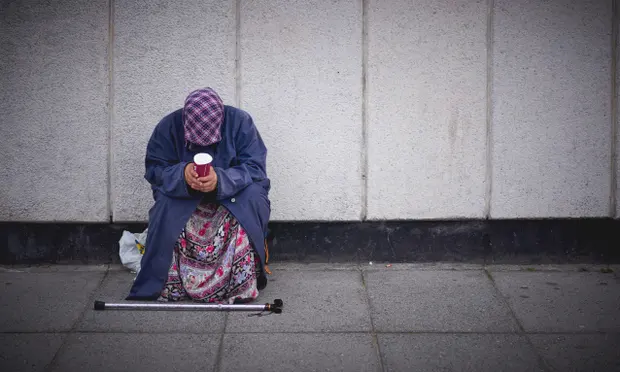A record number of on-the-spot fines were issued by councils for what have been dubbed “busybody offences”, with many cracking down on activities such as feeding birds, swearing and napping in public.
The seemingly bizarre nature of some of the fines issued under Public Spaces Protection Order legislation has seen them increase to 13,433 in 2022, up from 10,412 in 2019. More than 150 councils issued at least one penalty in 2022, according to a report.
Offences for which people were fined included shouting, which had been banned by four councils, and making noise, which was also banned by four councils. There were 22 restrictions on loitering, seven on busking, 11 bans on swearing or foul language, six on feeding the birds and seven restrictions on rough sleeping or sleeping in a vehicle.
The findings have been revealed by the Manifesto Club, which campaigns for freedom in public spaces and civic life. Josie Appleton, the group’s director and author of the report, said there were “thousands of petty restrictions on almost any conceivable activity in public spaces”. She added that powers “need to be scrapped or severely reformed, before more innocent people are punished and our public spaces become the private spaces of officialdom”.
She also raised concern about how these could affect homeless communities. “The use of these powers to target those who are homeless amounts to a criminalisation of poverty. Slapping homeless people with fines for begging is as perverse as it is heartless. It is even more worrying that rough sleepers could soon be fined the vast sum of £500 for begging, sleeping in a public place or looking in bins. The government should be looking to scrap these powers, not extend them and make the problems even worse.”
The Local Government association, however, argued that antisocial behaviour, “such as public drinking, racing in cars, aggressive begging and intimidating behaviour, can ruin people’s quality of life, harm businesses or mean people are scared to visit public places”.
They said PSPOs were subject to “scrutiny” and “will not be suitable or effective in all circumstances, and councils will consider other approaches which may better resolve issues”.
Out of 303 local authorities that responded to a freedom of information request, 266 said that they currently had at least one PSPO in place. Only 10% of councils had never had a PSPO.
Rugby council criminalised the climbing of trees, and made it a crime to pick up stones in certain areas. Wiltshire banned the possession of stones or ball bearings.
A spokesman for Rugby borough council said the council did so “to protect and enhance habitats” at Newbold Quarry Nature Reserve.
It is now an offence to have a nap in a park in Rother and Welwyn Hatfield, after both councils made it a crime to sleep in a public place.
The report found that councils are creating broad-brush laws that ban people from doing anything that potentially annoys any other person. For example, Southend-on-Sea banned people from “using bikes in a way that has a negative effect for others”.
Southend-on-Sea councillor James Courtenay, said: “This followed many complaints about reckless cycling and the illegal riding of e-scooters which made it clear this had become a significant frustration and a genuine worry for many people. We’re aware of at least two incidents where young children have been knocked over by people on e-scooters, for example, and the introduction of this has been largely welcomed locally.”
The report said: “The existence of this catch-all power is largely an excuse for lazy and excessive law-making, and has led to some of the worst laws ever to have entered the statute book.”
Tim Clement-Jones, a Liberal Democrat peer who has challenged PSPOs, said: “I have raised the issue of PSPOs several times in the House of Lords, but it seems that the problems with this power continue to pile up. The redrafting of the statutory guidance hasn’t worked. The government needs to go back to the drawing board and bring through a properly regulated bylaw power that is not open to such abuse.”


